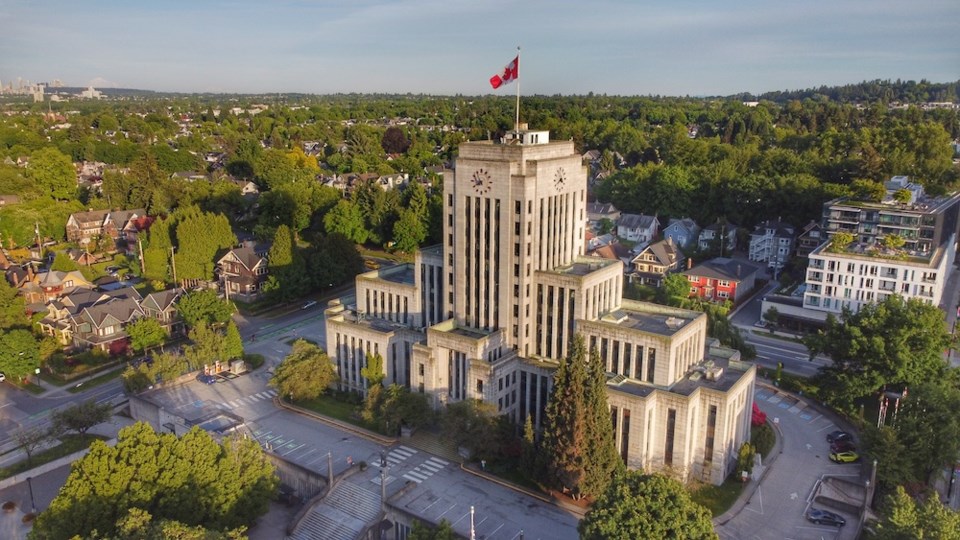The City of Vancouver has voted down a staff recommendation to delay a mandatory zero-emissions building plan set to roll out next year.
The plan requires new buildings three storeys and below to electrify heating and domestic hot water appliances and to include better insulation and windows in their construction starting Jan. 1, 2022. It’s part of the city’s 2020-2025 Climate Emergency Action Plan designed to move Vancouver toward cutting emissions in half by 2030.
Staff proposed to pause the plan for 12 months as a way to cut down on a backlog in building permit applications.
A staff report from city manager Paul Mochrie says the COVID-19 pandemic has created “a perfect storm” with an exploding housing market leading to an uptick in building projects requiring permits. At the same time, city staff face burnout as they struggle to work from home without appropriate technology infrastructure, he said.
A majority of city councillors disagreed those concerns trumped action on climate change. In the end, the Tuesday evening vote was nearly split, with five in favour to delay and six against.
“Delay is the new climate denial,” said Coun. Christine Boyle in the lead up to the vote. “We don’t need to pit these issues against each other.”
Several councillors expressed concern voting to delay action on climate change would send a dangerous message to other municipalities and damage the city's brand as the world's "Greenest City."
Supporting a delay in the zero-emissions building plan, Coun. Sarah Kirby-Yung said, “We just need to bear down on this to get to other priorities like climate.”
Other measures to speed up the construction of new homes passed. Council voted in favour of temporarily suspending parts of the protection of trees bylaw to cut down about 200 trees in the way of development and a plan to temporarily relax a bylaw around aesthetic review of architectural design. Together, staff said those measures will save thousands of hours in permit application backlogs.
'JUST DOESN'T MAKE SENSE'
Industry groups like the Homebuilders Association Vancouver (HAVAN) and the Canadian Institute of Plumbing and Heating (CIPH) had supported the city staff’s recommendation to streamline permit applications, even if it meant delaying climate action.
Pointing to “hard choices,” HAVAN’s Ron Rapp said Surrey cut the average time for a single-family home permit to 10 weeks, just a little more than the time it currently takes to get an appointment to make a permit application in Vancouver.
CIPH, meanwhile, had lobbied the city to delay its roll out of a zero-emissions building plan for two years, claiming “gaseous fuel” should have a place in the city’s future as it moves to reduce emissions.
But others in the building industry said calls to delay the zero-emissions building plan were misguided.
“We’re really concerned about processing and permit times,” said Dave Ramslie, vice-president of innovation and sustainability at Concert Properties.
“But the idea that it takes longer for a city to approve an electric building as opposed to the gas building? It just doesn’t make sense.”
Correction: An earlier version of this story named Eric Holmes as Vancouver's city manager. That is incorrect. Paul Mochrie is the city manager. We apologize for the error.



